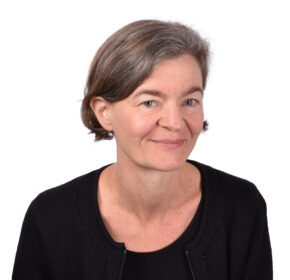Coping with globalization: How do policies to promote excellence affect the research community? (PEAC)
- Status: Avsluttet
- Prosjektnr: 451898
- Start: 01.08.2011
- Slutt: 01.06.2013
- Finansiering: Norges forskningsråd
Prosjektbeskrivelse
In response to the challenges of globalisation, a number of research policy efforts aim at better conditions of critical mass, international visibility and enhanced scientific competitiveness. In this project, three different sets of such policy instruments are examined: centre schemes for promoting (1) scientific excellence, (2) innovation and competitiveness, and (3) capacity to contribute to global challenges.
The project addresses the effects of such policy instruments on the research community and aims to contribute to the knowledge base for improving policy. Existing studies indicate that excellence schemes generate cumulative advantages for the beneficiaries and may have profound structural effects on the general conditions for performing research. Moreover, excellence schemes have different objectives with different potential for impacting the research agenda, and there is a need to better understand how different schemes interact and affect research environments. The PEAC project will provide an in-depth comparative, Nordic study of these research questions:
- What characterises the policies and instruments for excellence in research and innovation in the Nordic countries? How do policies for excellence differ in terms of relative emphasis on scientific, economic and societal objectives?
- To what extent and in what ways do instruments for excellence promote new kinds of research units and activities?
- How are centres embedded within their host institution?
- How do instruments for excellence promote competition and cooperation respectively, and how are national vs. international orientation affected?
- To what extent do research units exploit opportunities opened up by various schemes and instruments? How do they deal with potential tensions between main objectives?
- How and to what extent do centres benefit from and exploit accumulative advantages that their status and conditions provide?
The project is performed in cooperation with research partners at the Department of Political Science at University of Copenhagen, the Research Policy Institute at Lund University, VTT Technical Research Centre of Finland and SINTEF.
Research group:
• Liv Langfeldt, NIFU (coordinator)
• Dag Aksnes, NIFU
• Mats Benner, Lund University
• Siri Brorstad Borlaug, University of Oslo/TIK and NIFU
• Hanne Foss Hansen, University of Copenhagen
• Egil Kallerud, NIFU
• Ernst Kristiansen, SINTEF
• Antti Pelkonen, VTT
• Gunnar Sivertsen, NIFU
Advisory group:
• Geir Arnulf, Norwegian Ministry of Education and Research
• Åse Gornitzka, University of Oslo
• Bjørn Haugstad, University of Oslo
• Liv Jorunn Jenssen, The Research Council of Norway
• Timo Kolu, Academy of Finland
• Pär Omling, Lund University
• Curt Rice, University of Tromsø
• Susanna Sepponen, NordForsk
• Thomas Sinkjær, The Danish National Research Foundationv
Publications:
Centres of Excellence in the Nordic countries. A comparative study of research excellence policy and excellence centre schemes in Denmark, Finland, Norway and Sweden. Oslo: NIFU Working Paper 4/2012. Link to the report
Excellence initiatives in Nordic research policies: Policy issues – tensions and options. Oslo: NIFU Working Paper 10/2013. Link to the report
